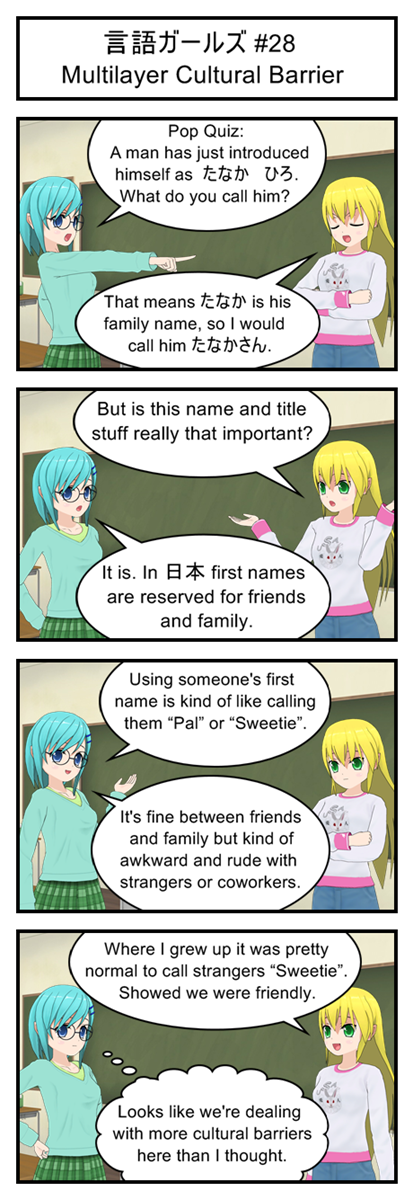
It’s often said that the Japanese are more polite than us Americans, and it’s probably true. But a big part of this comes from the fact that the Japanese have a very different definition of “polite” than we’re used to.
Here in America our country was based around the idea that “all men are created equal”. As a result we consider it really rude when a person tries to act superior by insisting on a specific title. A PhD might prefer to be called “Doctor” but if he makes too big a deal out of it we would consider him to be acting impolite. In many parts of the country we actually prefer it when people are casual and feel insulted when people are too formal.
Japan, on the other hand, has a history full of military empires where rank was everything. As a result their language is full of different ways tot show respect and it’s considered very rude to not use language that clearly identifies the difference between superiors vs inferiors or friends and family vs casual acquaintances. Now that Japan’s military government has been replaced by a modern democracy “superior” is more likely to mean a senior coworker than a nearby warlord but the tradition of respecting even small differences in social rank is still going strong.
Transcript
言語ガールズ #28
Multilayer Cultural Barrier
Blue: Pop Quiz: A man has just introduced himself as たなか ひろ. What do you call him?
Yellow: That means たなか is his family name, so I would call him たなかさん.
Yellow: But is this name and title stuff really that important?
Blue: It is. In 日本 first names are reserved for friends and family.
Blue: Using someone’s first names is kind of like calling them “Pal” or “Sweetie”.
Blue: It’s fine between friends and family but kind of awkward with strangers or coworkers.
Yellow: Where I grew up it was pretty normal to call strangers “Sweetie”. Showed we were friendly.
Blue: Looks like we’re dealing with more cultural barriers here than I thought.